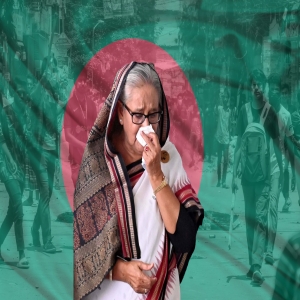
 Fr. Gaurav Nair
Fr. Gaurav Nair

The policies of the Bharatiya Janata Party (BJP) government in India, particularly those targeting minorities and lower classes, are not only causing internal strife but also creating vulnerabilities that could be exploited by external agencies. The systematic marginalisation of Muslims, Dalits, and other marginalised communities through laws like the Citizenship Amendment Act (CAA) and the National Register of Citizens (NRC) has led to widespread unrest and discontent. The narratives against minorities have led to outrage and aggravated the existing split between different communities. These actions are weakening the social fabric of the nation and creating fertile ground for foreign powers to meddle in India's internal affairs. The situation is not just concerning, it is urgent and demands immediate attention.
International human rights organisations and foreign governments have increasingly criticised India for its treatment of minorities. This global scrutiny not only "tarnishes" India's narcissistic image of being a Vishwaguru but also makes it susceptible to diplomatic pressures and covert interventions. The portrayal of India as a nation in turmoil, with rising incidents of communal violence and caste-based discrimination, provides an opportunity for external agencies to intervene under the guise of protecting human rights or promoting democracy. The gravity of this situation cannot be overstated.
Moreover, the BJP government has actively refused to revise its economic policies, which have disproportionately affected the lower classes, exacerbating inequality and driving millions into poverty. Their continued support of the corporates, the agrarian crisis, rising unemployment, the dilution of labour laws, and the clampdown on freedom have all contributed to a sense of alienation among large sections of the population. The impact on the lower classes is not just significant, it is alarming. External forces looking to destabilise the country can easily exploit this disillusionment with the government.
Furthermore, through NEP, the government seeks to build a nation of dolts subscribing to illusions of Hindu grandiosity. This will be detrimental to any process of healing the expanding chasm on communal and casteist lines. The government's push for a Hindutva agenda, supported by its campaigns, is only going to get it labelled as terrorists, especially when interspersed with the persecution of minorities.
India's growing internal dissent, fueled by these exclusionary policies, opens the door for foreign agencies to incite unrest, support separatist movements, or influence public opinion through disinformation campaigns. If left unchecked, these vulnerabilities could undermine India's sovereignty and weaken its position on the global stage. The government must urgently reassess its approach to governance and prioritise inclusivity and harmony to safeguard the nation from external threats. A shift in policies is not just desirable but imperative to protect India's sovereignty and maintain its global standing.